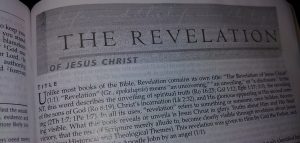A Renewed Vision of the Church

Blessed be the God and Father of our Lord Jesus Christ, who has blessed us with every spiritual blessing in the heavenly places in Christ, just as He chose us in Him before the foundation of the world, that we would be holy and blameless before Him. In love He predestined us to adoption as sons through Jesus Christ to Himself, according to the kind intention of His will, to the praise of the glory of His grace, which He freely bestowed on us in the Beloved.
Ephesians 1:3-6 NASB
Recently because of the COVID-19 pandemic, I have had cause to consider the true nature of the church, and some of my discoveries are ancient truths that most Christians have forgotten. These ancient truths have rarely even been heard in this century (the 21st for the record). I could go through church history and give reasons why this happened, and maybe I will in different articles, but in this one, my intention is to be as broad as possible to include the truths of the Church Universal – all believers through all time, assembled for the worship of Almighty God, all to give to Him the glory and grace that is due His name.
The opening quote, taken from Ephesians 1:3-6, is not written to an individual. It was written to a group of individuals. That specific group is so special to God that He has blessed that group with every spiritual blessing in the heavenliness in Christ – that group is the Church, in particular the church at Ephesus in this letter. It is possible that Paul dictated this letter as an encyclical, that is a letter to be passed around to all the churches so that all believers might read it, such is its importance. Whatever the case, Ephesus was the first to receive it. How do we know this? By a particular word usage: “…who has blessed us with every spiritual blessing…” It was certainly written to Ephesus, and if scholars like Dr. John MacArthur are correct about it being an encyclical, Paul wrote it directly to anyone that would read it, including us, and that will be the context of this article going forward.
This got me thinking about who “us” actually was, and it is clear from verse 1 of that same text that it is “…To the saints…” Who are the saints? Some (mostly Romanists) would have us believe that this is a select few people that have been accepted into heaven because of the godliness they displayed here. However, by usage in the New Testament, it is the Greek word hagion, which simply means “holy ones,” and it seems clear that Paul is using the term as a formal salutation to the Christians that are gathered in the name of Christ, in this case in Ephesus. The word “saints” used in this context gives a huge clue as to whom this refers.
This refers to those individuals that He has set apart, from the text quoted at the beginning of this article, from before the foundation of the world to be holy and blameless before Him. These ones he predestined (the actual word used) in love to adoption as sons through Jesus Christ to Himself, according to the kind intention of His will. These people that he has chosen [Greek eklectos, to choose] before the beginning of time on earth, he has set apart [Greek hagion, to set apart, to make holy] to serve Him, according to the kind intention of His will. It refers to that group of believers that comes from all time, from all nations, from all tribes, from all skin colours, male and female – that God has chosen for His own reasons which He has chosen not to disclose to us other than that He has kind intentions. We call this group the Church.
Wait, Ger, do you mean that building on the corner? No, I mean at least some of the people in it, perhaps, but I have met with the Church in an open field in rural Quebec. I have met with the Church in the basement of the home of an Elder for worship. I have met with the Church in the building of the same name that is dedicated to that specific purpose. The church does refer to the people, and not to the building. And yet the Apostle Peter (among other Apostles) used the analogy of a building:
…you also, as living stones, are being built up as a spiritual house for a holy priesthood, to offer up spiritual sacrifices acceptable to God through Jesus Christ.
1 Peter 2:5
This spiritual building that Peter is using as an analogy here is talking about the same thing. Jesus Christ is the Foundation stone in this case, but the point of both analogies is that Jesus Christ is over all His believers in rank and in power. The very important and truly amazing thing is, He shares all of that with His people. It is my hope through a series of articles to share more about this.
This topic is so important that if you try to live this way, you WILL face persecution. Look around at what passes for “church” today and tell me that you see “holy and blameless” behaviour from men who overexert their authority, or from women who treat Jesus like their boyfriend and write songs about having sexual intercourse with Him? How is any of that set apart and without sin? Or people that claim “same-sex attraction” “struggles?” First, Romans 1 calls that “vile affections.” Second, if they were really “struggling,” they wouldn’t be trying to justify the behaviour before God all the time. Scripture calls these things sin, and nothing and nobody sinful can be “holy and blameless.” I bring this up because “churches” (they aren’t) are trying to make room for these people and telling them it is okay to live in their particular sins. Say that out loud at a “pride” parade and you’ll be arrested here in Canada. It has happened, and recently. Or “churches” cancel services because the government said we have to – and nobody even hesitated. Ouch.
The purpose of the Church of God is SO high, and SO holy, that we cannot ALLOW sin in its midst. If a “church” is trying to do that en masse, you should consider leaving and finding a place that will reflect that holy and blameless setting. You will not find a perfect place this side of heaven, but at least the place should be trying.
We’ll try to get another article out on this extremely important subject soon.





